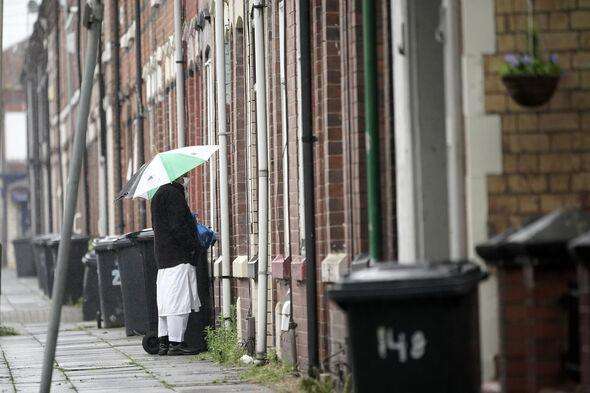This in-depth analysis from the Daily Dazzling Dawn explores the British Bangladeshi community, a population that presents a striking economic paradox. On one hand, official data reveals a high rate of economic inactivity, particularly among women, and a notable reliance on state benefits. On the other, the community has a powerful entrepreneurial spirit, dominating sectors like the restaurant industry. This isn't a sign of laziness or a lack of ambition, but rather a complex situation shaped by unique social, historical, and economic factors.
The Reality of Economic Inactivity
The high rate of worklessness in the British Bangladeshi community isn't a simple issue of a lack of work ethic. Instead, it's heavily influenced by specific demographic and social factors.
A significant driver is the gender disparity in economic participation. Data from 2022 shows that 48% of women in the combined Pakistani and British Bangladeshi group were economically inactive, a sharp contrast to just 19% of men. This is often tied to cultural and religious norms where women are traditionally the primary caregivers. The lack of affordable childcare and limited access to professional networks and career support only makes this situation worse.
Furthermore, the historical context and skills of many first-generation British Bangladeshi immigrants created significant barriers to entering the mainstream labor market. Many arrived with limited English language skills and formal qualifications. This, along with systemic discrimination, often relegated them to low-skilled, low-wage jobs. For those unable to secure employment, worklessness and benefit dependency became a necessity for survival.
Finally, the household structure and poverty play a crucial role. British Bangladeshi households are more likely to have a larger number of dependents, including children and older relatives. With a single earner—or none at all—it becomes incredibly difficult to support the family without state assistance. This is why 41% of children in British Bangladeshi households lived in low-income situations between FYE 2016 and FYE 2018. The benefit system, therefore, serves as a crucial lifeline.
Entrepreneurship as a Strategic Response
The paradox is resolved when one understands that self-employment is a strategic response to these very same barriers. For many, owning a business is a way to bypass hiring discrimination and credential barriers in the job market. Rather than waiting to be hired, they create their own opportunities. This is particularly evident in the restaurant and catering sector, where British Bangladeshi entrepreneurs have a long-standing and dominant presence. The "Indian restaurant" sector in the UK, which is predominantly owned and operated by people of British Bangladeshi origin, is a prime example of this entrepreneurial niche.
British Bangladeshi businesses are often family-run, utilizing community and family networks. This provides employment and income for family members who might otherwise be economically inactive. This structure also helps overcome a lack of access to traditional financing, as capital is often pooled within family and community networks.
Ultimately, this entrepreneurial path serves as a crucial route to economic mobility. While many of these businesses may be small or operate on tight margins, they offer a tangible path to independence. For families in low-income situations, a business can provide a higher level of income and stability than low-wage employment. It's also seen as an investment in a better future for their children, a key motivator for the community's success.
Available Statistics and Additional Insights
Further data from UK government sources provides more context. In 2022, the combined Pakistani and British Bangladeshi ethnic group had the highest rate of economic inactivity in the UK at 33%, significantly above the national average of 22%. The lowest rate was seen in the "White Other" group at 15%.
Regarding benefit dependency, the British Bangladeshi and Black ethnic groups have the highest rate of families receiving income-related benefits, with 24% of families receiving such benefits in the three years leading up to March 2021. This contrasts sharply with the Chinese ethnic group, which has the lowest rate.
On the entrepreneurial front, while specific recent data for the British Bangladeshi group alone is not always available, they are often combined with the Pakistani group. Data shows that Pakistani and British Bangladeshi individuals are among the most likely to be self-employed in the UK. 2021 data on business ownership shows that ethnic minorities make up 12% of all self-employed business owners, with people of Indian (3.4%) and Black (2.1%) ethnicity being the most prominent.
The unique economic position of the British Bangladeshi community reflects a powerful resilience and a strategic adaptation to systemic barriers. The high rates of worklessness and benefit dependency aren't a sign of a lack of ambition, but rather a symptom of complex historical and social challenges. The entrepreneurial drive, in turn, is a successful response, allowing the community to create its own opportunities and build economic stability on its own terms.
_4.jpg)

_4.jpg)





.svg)

_3.jpg)
_1.jpg)